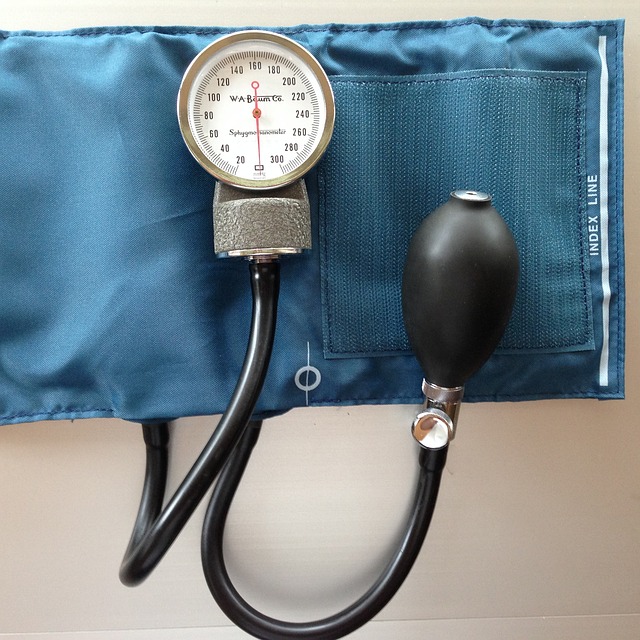In the UK, managing thyroid health relies on understanding thyroid function tests, with the UK Standard Thyroid Blood Test (TBT) as a key assessment. This test measures hormones T4, T3, and TSH to diagnose conditions like hypothyroidism, hyperthyroidism, and thyroid nodules. Recommended for symptoms suggesting dysfunction or high-risk individuals, the TBT guides care plans based on professional interpretation of results. Kits include components for accurate testing, ensuring proper sampling with instructions, lancets, and needles. Interpreting test results helps identify disorders; normal T4/T3 levels indicate optimal function, while elevated or lowered levels signal abnormalities. Doctor-led diagnoses consider symptoms and history for suitable treatment recommendations.
“In the UK, understanding thyroid health is paramount, as it influences nearly every bodily function. This guide delves into the essential aspect of diagnosing and managing thyroid conditions with a focus on the UK Standard Thyroid Blood Test. We’ll explore the key components of a typical thyroid examination kit used by healthcare professionals, simplify the interpretation of test results, and empower patients to navigate their thyroid health journey effectively.”
- Understanding Thyroid Function Tests in the UK
- Components of a Standard Thyroid Blood Test Kit
- How to Interpret Your Thyroid Blood Test Results
Understanding Thyroid Function Tests in the UK
In the UK, understanding thyroid function tests is crucial for patients seeking to manage their thyroid health effectively. The UK Standard Thyroid Blood Test is a comprehensive assessment that measures key hormones produced by the thyroid gland. This test plays a vital role in diagnosing thyroid conditions such as hypothyroidism, hyperthyroidism, and thyroid nodules. By analysing blood samples for levels of thyroxine (T4), triiodothyronine (T3), and thyroid-stimulating hormone (TSH), healthcare professionals gain valuable insights into thyroid function.
The UK Standard Thyroid Blood Test is typically recommended by doctors when there are symptoms suggesting thyroid dysfunction, such as fatigue, weight changes, or unusual heart rhythms. It also serves as a routine check for individuals at risk of thyroid disorders due to age, family history, or underlying medical conditions. Accurate interpretation of these test results requires professional expertise, ensuring patients receive appropriate care and treatment plans based on the findings.
Components of a Standard Thyroid Blood Test Kit
A UK Standard Thyroid Blood Test kit typically includes a comprehensive range of components designed to accurately assess thyroid function. Key elements include test tubes or vials for collecting blood samples, as well as specialized reagents and analytical equipment. These reagents are used in laboratory settings to detect and measure levels of key thyroid hormones, such as T3 (triiodothyronine), T4 (thyroxine), and TSH (thyroid-stimulating hormone).
Additionally, the kit may feature instruction manuals detailing proper blood collection techniques, a lancet for finger pricking, and disposable lancets or needles to ensure safety and sterility. Some advanced kits might also include digital counters or analyzers that provide rapid and precise results, enhancing convenience and patient experience.
How to Interpret Your Thyroid Blood Test Results
Interpreting your thyroid blood test results is a crucial step in understanding your thyroid health, especially for UK patients using standard thyroid blood tests. The most common test measures thyroxine (T4), triiodothyronine (T3), and thyrotropin (TSH). Normal levels of T4 and T3 indicate that your thyroid gland is functioning optimally, while elevated or lowered levels can suggest thyroid disorders like hypothyroidism or hyperthyroidism.
TSH, the hormone released by the pituitary gland to stimulate the thyroid, plays a key role in maintaining thyroid function. High TSH levels often point to hypothyroidism, where the thyroid doesn’t produce enough hormones. Conversely, low TSH levels might suggest hyperthyroidism, where the thyroid produces excess hormones. Your doctor will consider these results alongside your symptoms and medical history to make an accurate diagnosis and recommend appropriate treatment for any identified thyroid conditions.
In conclusion, understanding and accessing a UK standard thyroid blood test kit is an essential step for patients seeking to manage their thyroid health. By familiarising themselves with the components and interpretation of these tests, individuals can actively participate in their healthcare. This knowledge empowers patients to make informed decisions and work closely with their healthcare providers to achieve optimal thyroid function.
